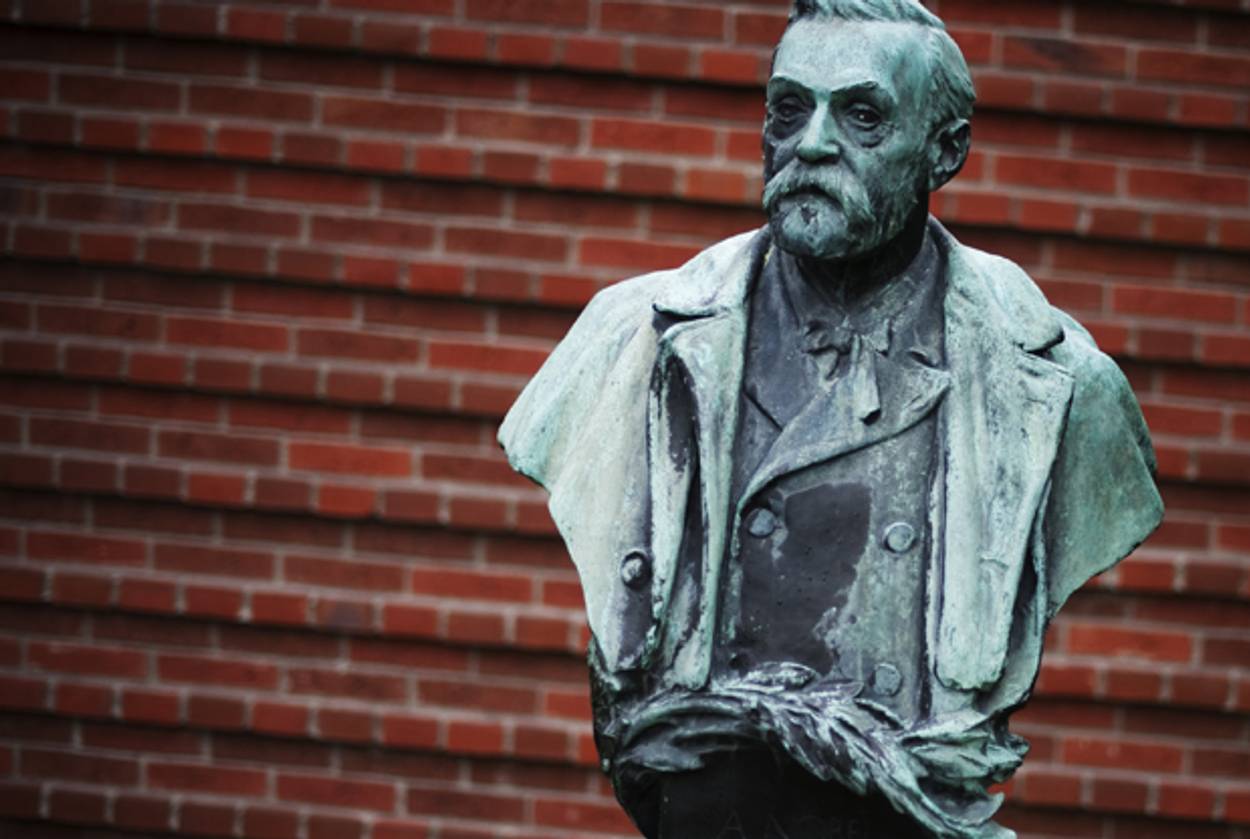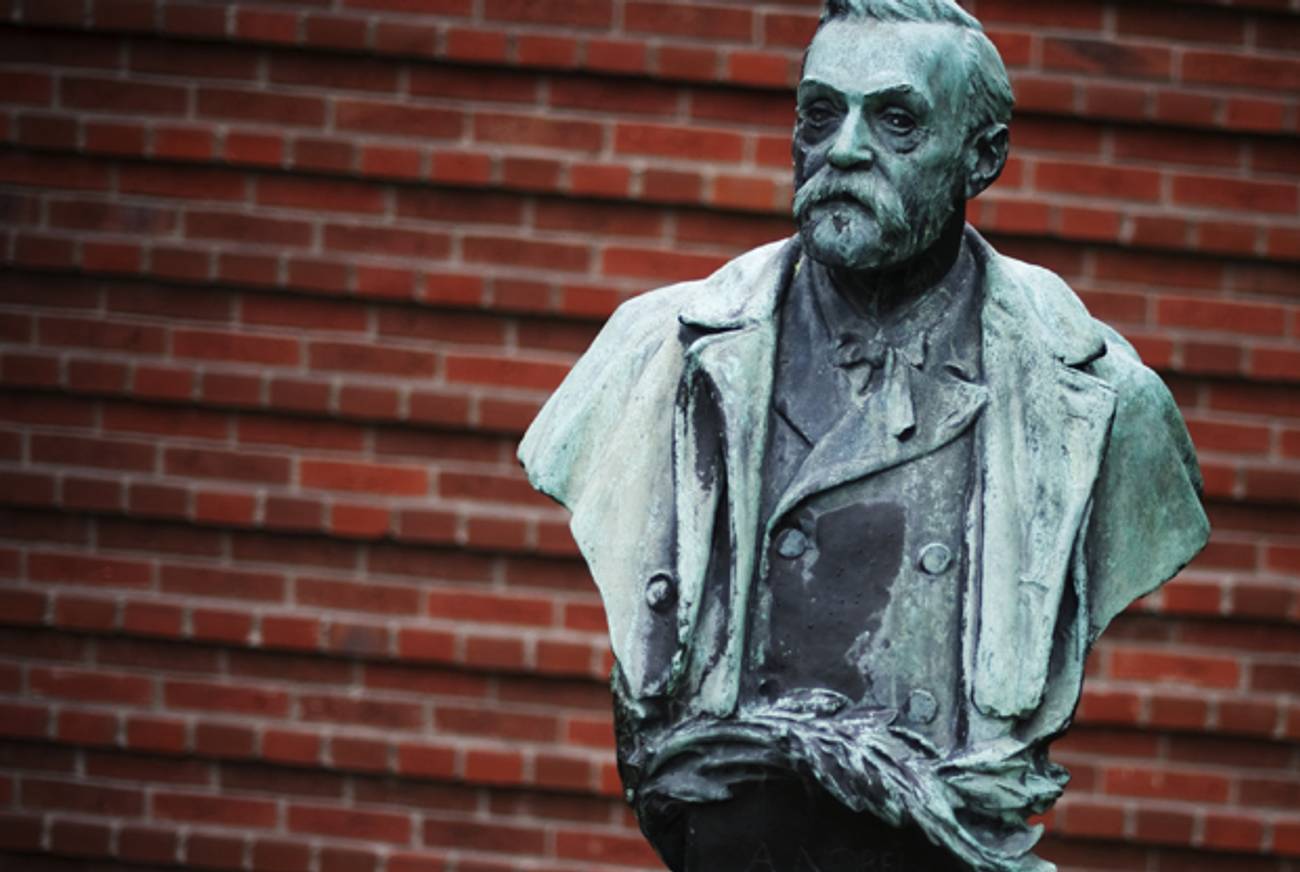In Israel, September is Nobel Season
Predicting which Israelis will win the esteemed award is a national pastime




September is perhaps the most underrated month of the entire year. It can be easy to forget that most of September courses through summer—and by “summer,” I refer not to the sweaty, cloying humidity that gives the season a bad name but, rather, to the pleasant sunshine and balmy breezes. If one is Jewish, even if not an affiliated member of the tribe, September is the month to begin gearing up for the High Holidays. Perhaps even to start hoping for a favorable New Year. And if you’re Israeli, September is when your adrenaline likely begins to surge in anticipation of the year’s biggest news: the Nobel Prize selections.
Indeed, just as Cleveland residents followed LeBron James’ decision-making in June, Israelis track the six Nobel Prize selection committees’ process each year. It, too, is a form of sport. In fact, it could be called our national pastime. Here in Israel, Nobel season has begun.
Israelis know the Nobel drill. Since the State was founded in 1948, approximately a dozen countrymen have won the esteemed award. But that’s history. Current excitement stems from a simple calculation. If, as most genealogists would assert, nearly 30 percent of prize winners to date have been Jewish—and if half of the world’s Jewish population currently resides in the Holy Land—then, probability dictates, one in six Nobel laureates to-be should be Jewish Israelis.
In the build-up to last year’s Nobel announcement, many predicted that Hebrew University professor Howard Cedar would win the prize for either Medicine or Chemistry. From 2002 to 2012, the Thomson-Reuters Corporation had accurately predicted every one of the Nobel winners in scientific disciplines. They too bet on Dr. Cedar.
Throughout last September, I found myself bombarded with questions about my opinion on Cedar’s chances. My medical students and even the vegetable vendor who sells me cucumbers at Jerusalem’s Mahane Yehudah open-air market badgered me for the inside scoop. And I, of course, was willing to weigh in on the matter. But alas, despite his unparalleled expertise in DNA methylation and gene expression, Cedar did not prevail.
As soon as the announcement was made, the provincial Israeli press began scrambling to save face. Many news outlets began asserting that two of the Chemistry honorees, Michael Levitt and Arieh Warshel—practicing professors at, respectively, Stanford University and USC—were, after all, Israeli scientists, because in the 1970s a portion of their research had been conducted at the Weizmann Institute in Rehovoth. Both men were urged to partake in televised interviews conducted in Hebrew and intended, ostensibly, to assure viewers that the current Israeli educational system remains sufficiently primed to produce additional Nobel laureates. Divergent strategies were proposed to stem the brain drain, dubbed by some the Exodus of Excellence, to American institutions of higher learning. Such debate, however, would, of course, beg the question as to whether Levitt and Warshel, themselves, were in fact homegrown products.
Even casual observers acknowledged that the trumped up efforts felt petty and unbecoming. This year, so far, calls for media restraint and dignity have triumphed over last year’s jingoistic prognostication. This Nobel season, to date, most Israeli pundits have complied with the tacit ban on fortune telling. Thank God.
As for me, I’m still rooting for Cedar.
Ben Corn is a professor of oncology at the Tel Aviv University School of Medicine/Tel Aviv Medical Center and the chairman of the NGO Life’s Door.
Previous: Why We Celebrate Nobel Prizes
Holocaust Survivor Francois Englert Wins Nobel
Related: Nobel Prize Winner Mo Yan’s Jewish Interpreter
Benjamin W. Corn is professor and chairman of the Institute of Radiotherapy at Tel Aviv Medical Center and a co-founder of the NGO Life’s Door.